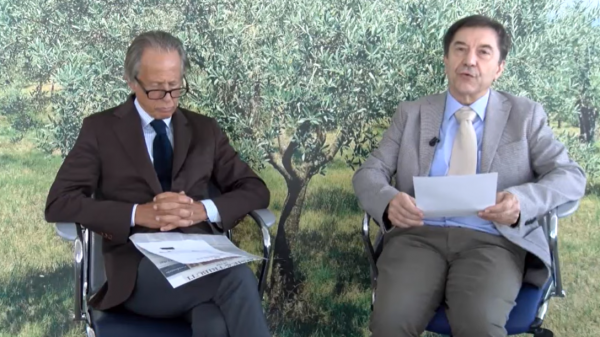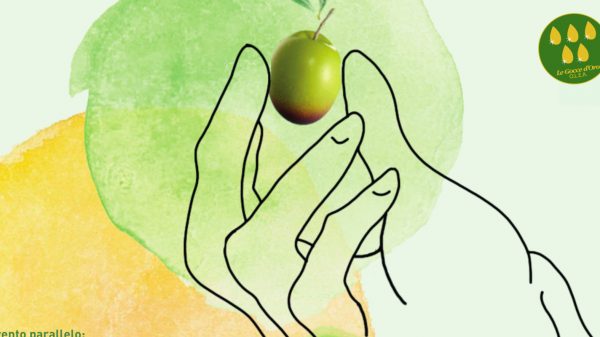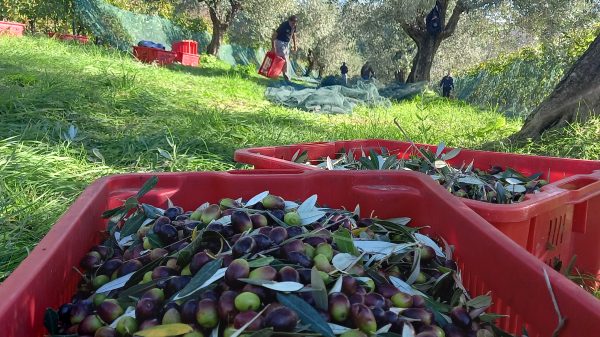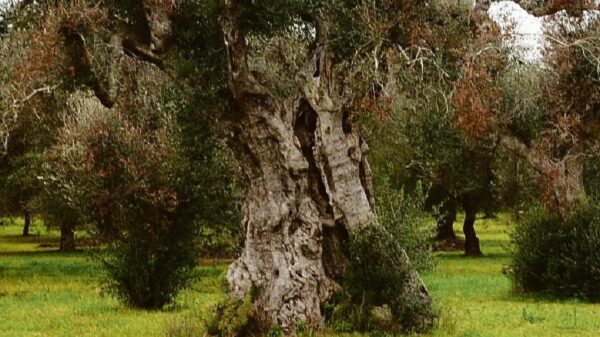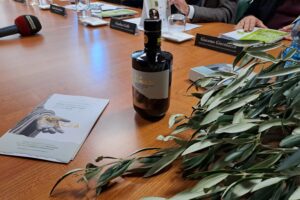 by Giampaolo Sodano
by Giampaolo Sodano
President of the Association of Oil Masters
With the law in force “Regulations on quality and transparency in the virgin olive oil supply chain”, the need to hinder fraudulent activities and unfair commercial practices within the virgin olive oil supply chain has been met, to protect consumers and fair competition between businesses. The rules of this law allow us to pursue the objective of preserving the authenticity of extra virgin olive oil and the transparency of the information provided both on the label and in commercial practices.
However, the oil masters are convinced that to help the consumer even better to distinguish commercial olive oils from artisanal ones there is need to have clear and rigorous criteria capable of providing all the information for characterize the requirements of artisanal olive oils, i.e. made only in artisanal oil mills and give even more transparency to the oil market.
In this context, taking up an idea long advocated by Italian oil millers, we believe it is strategic to establish the concept of “producers of excellence” for artisan oil mills, because they are the natural safeguard of quality and above all of biodiversity. Companies where they work competent people, ready to guarantee their product, because they have control of the entire supply chain, professional competence in the management of technologies, in the transformation method and in the production process: artisan companies take care of all the "phases of the supply chain, including distribution conditions.
The process of recognizing artisanal mills and oil masters has already been started, albeit only at a regional level. It was indeed the Puglia Region, in 2014, to mark a true revolution in the olive oil sector recognizing the artisan oil mill as the only producer of oil from olives and recognizing for the first time the figure of the master oil maker, approving regional law n.9 of 24 March 2014.
The Apulian law represents the concrete development of policies aimed at clarifying the roles of the actors in the Italian oil supply chain, recognizing the peculiar function of the artisan oil mill and, with the establishment of a register, the role of the oil master as a professional operator. This is a regulation that has no precedent either in Italy or in other European countries and which marks a new frontier in the olive oil sector.
To give completeness and national rank to the contents of the regional law, it seems useful to lower its fundamental principles into a national law to which all the regions, in a homogeneous manner, can conform and this can contribute to a radical change in policies and production. Italy, especially in oil, is the country of biodiversity par excellence with its record of 538 cultivars, and with a tradition and value given by the "know-how" that has been handed down for generations.
The Association of oil masters is well aware of having to follow a difficult path as the inevitable point of arrival would be the offer to the consumer of an oil, the artisanal one, up to now devoid of any distinctive sign compared to that obtained at end of a standardized process as happens for oil not produced by artisan companies. Therefore, the Association has carried out the necessary in-depth studies to base its initiative on concrete and incontrovertible foundations.
An analysis of the production process of the artisan oil mill, and of the varieties of Italian cultivars, was followed by an examination of the peculiarities of that process in terms of the intervention of the oil master, a professional figure expressly foreseen and identified by the Puglia regional law, to adapt the use of different extraction technologies to the characteristics of the cultivars used and their mixing in order to combine the characteristics of each cultivar in the most harmonious way. It is almost obvious to underline that in this context it is not possible to identify in principle an "artisanal oil", but "artisanal oils", i.e. extra virgin olive oils different both for the cultivars used and for the decisions taken by the artisan-master oil production during the production process, all of which can be grouped together in the term "artisanal oil" with reference to the characterization of production in this sense.
Is exactly the professionalism of the oil master responsible among other things for using the flexibility of technologies and the diversity, within certain limits, of production processes, for selecting the cultivars used for the blend, which guarantees the quality of the artisanal oil and this is the message we want to convey to the consumer. For this purpose the diction of “artisanal extra virgin olive oil” must be indicated on the label, in addition to any cultivars used in the minimum quantity of 75%, while the remaining quantity is the professional secret of the master oil maker: the truthfulness of what is stated can be easily verified through the data communicated by the mills to SIAN. This will be a further guarantee for foreign consumers of the Made in Italy of the product and of its craftsmanship: it is in fact practically impossible for the oil industry to provide those indications in particular for oils mixed and sold with an Italian brand.
Artisanal oil will be the real innovation in the oil sector, not only because it will make the consumer's choices clearer and more motivated, but also because it will constitute an incentive to consume and export Italian oil with advantages also for the mills that produce and market oil wholesale and for the growers of the olives as a result of increased demand.
In this context, action by public authorities is also desirable for the valorisation and modernization of olive-growing plants in order to increase the profitability of crops, as well as adequate measures for the modernization of production plants.
We believe we must underline that what is indicated by our association faithfully follows what has already been established for craft beer by articles 35 and 36 of law 28 July 2016 n. 154.
They could submit some rules for the definition of artisanal extra virgin olive oil to Parliament for examination, for example:
1. Artisan extra virgin olive oil is one produced exclusively with Italian olive varieties and packaged by an artisan oil mill, meaning an oil mill that is legally independent from any other oil processing and packaging plant and operates with its own production plants and whose owner or manager is an artisan company with an annual production of extra virgin olive oil not exceeding 5000 quintals.
2. The State enhances national olive production also through the improvement of olive varieties, the modernization of cultivation systems, respecting the landscape and the environment, and the modernization of production systems and technologies of artisanal oil mills.


